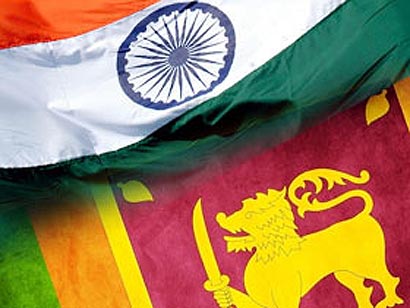India continues broad spectrum engagement with Sri Lanka

COLOMBO: Helping to rebuild the battered infrastructure in the north Sri Lanka and catering to the livelihood concerns of the Tamils have marked the broad spectrum Indian engagement with Sri Lanka in the past two post-war years, to ensure an early return of normalcy to the Northern Province.
Sri Lankan forces defeated the Liberation Tigers of Tamil Eelam this month two years ago.
While some longer gestation projects such as permanent houses for the people of the Northern Province are yet to gain momentum, many of the smaller India-propelled projects have ensured that the people who return to their hometowns and villages can begin rebuilding their lives.
The first issue after the conclusion of the war in 2009 was to resettle the internally displaced persons (IDPs). Once the Sri Lankan government took a policy decision to resettle IDPs — with considerable inputs from India and the donor community — India provided four million sheets of roofing (roughly 12 sheets for a house) and 40,000 tonnes of cement (eight bags for a unit). The United Nations Office for Project Services (UNOPS) handled the programme.
One example to demonstrate the kind of ground work that has gone into the assistance is the distribution of agricultural implements. India provided 95,000 family packs of basic agricultural implements valued at $3.2 million (distributed through the U.N. High Commissioner for Refugees; it was the single largest contribution to the U.N. body) so that people could start low-scale agricultural work. Reports from the field indicate that the project was a lifesaver and of great help to the resettled people.
Last year, India also supplied 500 tractors for use in the north. As many as 75 buses were provided to tide over shortage of vehicles.
Another focus area has been skill development for youth. The government, working through the Indian High Commission in Sri Lanka, has completed building a vocational training centre in the Muslim-dominated Puttalam. Another two such centres will be upgraded with Indian help in Batticaloa.
India has now also taken up a major project to renovate 100 schools in the Kilinochchi-Mullaitivu area.
Medical aid
Part of the Jaffna Teaching Hospital has been refurbished at a cost of $1.1 million. In the east, the Eastern University’s Ayush faculty will benefit from Indian collaboration and medical equipment. The Kilinochchi and Mullaitivu hospitals too will be refurbished by India.
The Jaipur foot and limb has ensured that people return to making a livelihood despite the loss of limbs. So far, India has supplied 1,400 limbs. India has also begun construction of a 150-bed hospital in Dickoya to cater to the hill districts.
Of the longer gestation projects, work on the Northern Railway line is progressing, after the de-mining team completed its work and handed over the 107-km stretch of railway alignment from Medawachchiya to Talaimannar. Seven Indian de-mining teams are working to clear more areas in the north.
The Sri Lankan Cabinet recently approved the handing over of the Kankesanthurai port, to be developed by India. Fishing equipment and boats have been given to Tamil fishermen to recommence operations. Of this, 175 of the boats were distributed to Muslim IDPs in the west.
However, issues in reconciliation remain to be addressed. These include an answer to what happened to those who went missing in the final stages of the war. This would ensure families to get closure reports. Land rights and permanent housing for the rehabilitated remain the other main challenges.
In the long run, accountability for the actions in the final stages of the war and a political solution to serve the aspirations of the minority are also issues that need to be addressed. All these find mention in the joint statement released in New Delhi, which was signed by the Foreign Ministers of the two countries.
Courtesy: The Hindu

Latest Headlines in Sri Lanka
- Indian PM Narendra Modi to visit Sri Lanka in early April 2025 March 15, 2025
- Sri Lankan President joins special Iftar ceremony at Temple Trees March 15, 2025
- Customs Inspector arrested for smuggling Rs. 30 Million cannabis oil March 15, 2025
- Police constable arrested for taking bribe to issue clearance certificate March 15, 2025
- COPE uncovers irregular NMRA certification process March 14, 2025



‘The Hindu’ is the voice of the Central Government of India. It has published a biased account of so-called aid from India to the IDP. The Indian Govt is trying to project an image that it was through its direct intervention with material aid, finance and pressure the SL govt has re-settled more than 300,000 IDPs within 2 years. This is utter rubbish! Indian govt has done very little in actual fact. It’s all words and little action. May be the Indian people and Tamil Nadu are esily duped but not our people. We know who India is. India is our real enemy who treat us as their colony, aligned with the imperial West to hold back our motherland from development and to break it up into bits for the eelamists and muslims and a little bit left for the Sinhalese majority.
But india also aware of if SL break in to bits, then a real firm threat which isn’t easily deal with like now, might be made against them in the same time.